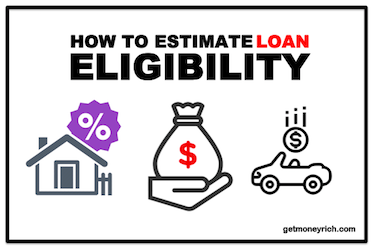Recently a reader posted this question to me: “Should I use funds from my mutual funds corpus to prepay home loan?” If you are also considering mutual fund withdrawals to prepay your home loan, I think article will help. It’s an intuitive urge, and at some stage of investing almost all investors face this dilemma. Being debt-free is also my number one priority. But before taking the final call, one must consider various aspects of units redemption and prepayment to take a wise call.
While living debt-free is appealing, there are a few factors to consider before selling our investments. I this blog post, I’ll try to list those factors that comes to my mind.
Investors sitting on mutual fund profits often wonder whether to use them to prepay home loans. The idea of a debt-free life is undoubtedly attractive. Given the burden of prolonged EMI payments and its psychological effect on our mind, loan prepayment is undoubtably a step in the right direction.
However, when a person is thinking about being debt-free, he/she starts to get too obsessed about it. I think, at this moment of time, building a 360 degree perspective about investment liquidation and loan prepayment can give deeper realizations.
Mutual fund redemption comes with trade-offs: income tax implications, loss of future growth, and reduced liquidity. Before you redeem your investments, it’s essential to consider all aspects: savings on loan interest, tax benefits of home loans, and the role of mutual funds in your financial security.
Let’s explore whether using mutual funds for loan prepayment is the right step for us or not.
Factors To Consider Before Redemption and Prepayment
1. Understanding Home Loan Costs and Benefits
Home loans, especially long-term ones, can weigh heavily on your finances and psychology due to prolonged EMI payments. Even low debt loads can effect our finances.
With this background, prepayment of loans can reduce the debt burden and shorten the repayment period. Loan prepayment is a way to read the financial freedom faster.
However, loans (especially home loans) are now always bad, they offer a few benefits as well apart from immediate liquidity:
- They offer tax benefits under sections 80C (up to Rs.1.5 lakh on principal repayment) and 24(b) (up to Rs.2 lakh on interest repayment).
- When we prepay our home loan, we lose these deductions, potentially increasing the taxable income.
This is the most common reason you will hear from people who advocates against loan prepayments. In this blog poset you will get five more points (to get a 360-degree view).
2. The Appeal of Mutual Fund Gains
Equity mutual funds have delivered strong returns recently. The last few years, pure equity funds have a given a CAGR returns in excess of 20% per annum. In the last three and five years, top 15 mutual funds schemes (by AUM) have given a return of 21.6% and 24.5% respectively. Some funds like “Nippon India Small Cap Fund” and “CPSE ETF” have given a return in excess of 30% per annum.
| SL | Schemes (Direct Plans) | AUM (Rs.Cr.) | Return (3Y) | Return (5Y) |
|---|---|---|---|---|
| – | – | Average Return: | 21.60% | 24.46% |
| 1 | SBI Nifty 50 ETF | 1,99,596.00 | 13.29% | 16.82% |
| 2 | SBI BSE Sensex ETF | 1,20,614.00 | 12.85% | 16.35% |
| 3 | Parag Parikh Flexi Cap Fund | 84,641.00 | 17.30% | 26.78% |
| 4 | HDFC Mid-Cap Opportunities Fund | 76,061.00 | 28.97% | 30.96% |
| 5 | HDFC Flexi Cap Fund | 66,304.00 | 25.20% | 24.83% |
| 6 | ICICI Pru Bluechip Fund | 63,938.00 | 18.83% | 20.68% |
| 7 | Nippon India Small Cap Fund | 61,646.00 | 30.08% | 38.74% |
| 8 | UTI Nifty 50 ETF | 59,667.00 | 13.30% | 16.82% |
| 9 | Kotak Emerging Equity Fund | 52,049.00 | 24.74% | 29.92% |
| 10 | Kotak Flexicap Fund | 51,276.00 | 17.61% | 18.95% |
| 11 | SBI Bluechip Fund | 50,502.00 | 14.83% | 18.44% |
| 12 | ICICI Pru Value Discovery Fund | 48,988.00 | 23.72% | 27.41% |
| 13 | UTI BSE Sensex ETF | 45,792.00 | 12.85% | 16.04% |
| 14 | SBI Contra Fund | 41,907.00 | 25.00% | 31.73% |
| 15 | CPSE ETF | 39,633.00 | 45.41% | 32.44% |
Selling now can feel like locking in those gains.
However, mutual funds are designed for long-term growth (to benefit from compounding). Withdrawing prematurely might mean missing out on future compounding benefits.
Long term wealth is not made by booking 30%-40% profit, but from a modest return of say 20% CAGR compounding for over 20-25 years.
Use the below online calculator to check how much a Rs.100,000 investment will become after 20 years which is compounding at 22% CAGR.
Compounding Investment Calculator
[Note: Home loan interest rate is is abour 9-10% per annum in India. If the loan gets prepaid, what you are actually saivng is this 9-10% extra cost due to savings. Now, suppose your home loan outstanding is say Rs.1 Crore and your mutual fund portfolio also has about Rs.1 crorpus. If you keep your money inved in the mutual fund, it can grow at about 16-18% per annum in the long run. But prepaying the home loan will only save 9-10%.]
3. Tax Implications of Withdrawing Mutual Funds
When you redeem mutual fund units, you incur taxes.
- For equity mutual funds, long-term capital gains (LTCG) above Rs.1 lakh are taxed at 10%.
- For debt mutual funds, gains are taxed according to our income tax slab. Factor in these tax costs to see if withdrawing still makes sense.
If you want to know in detail how mutual fund returns are taxed (STCG and LTCG), read here.
4. Liquidity Considerations and Emergency Funds
Mutual funds are liquid assets, providing quick access to cash. In way, it acts like an emergency fund. Such accumulated funds gives us a sense of security. Though we may never use it, but still it works as an emotional back-up.
If you use them to prepay a home loan, your funds become locked into the property.
When the mutual funds get redeemed, we will be without an emergency fund. It will leave us more vulnerable to unexpected future expenses.
So what's suggested?
Ensuring that we have at least 6 months of expenses set aside (leave this much amount in locked in the mutual funds) and then consider loan prepayment.
5. What is The Priority?
5.1 A Wealth Builder
There are people for whome wealth building in long term is a priority. For such people, selling their mutual funds units to prepay their home loan may not be the right step. Though, reducing debt the loan is generally considered a wise move, but its effect can change from person to person.
If you are somebody who gets inspired seeing your net worth grow overtime, loan-repayment may not ispire you as much. May be, after selling your mutual funds and becoming debt-free, you might feel discouraged. For such people, holding on to the mutual funds will be better.
5.2 A Defensive Mindset
Consider a person who has decided to leave his 9-5 job to start his own venture. But before saying "he quits" he wants to reduce his external liablities to near zero. Let's say his biggest liability is sat a home loan. Such a person can decide to redeem his mutual fund units to become loan-free.
If living debt-free is a core financial goal, prepaying your loan can provide peace of mind and lower monthly obligations.
However, balance this with the potential for your investments to outperform your loan’s interest rate. A hybrid approach — partial prepayment while keeping some investments — may offer the best of both worlds.
6. Interest Saving vs Potential Future Return Lost
Home loan interest rate is is abour 9-10% per annum in India. If the loan gets prepaid, what you are actually saivng is this 9-10% extra-cost due to interest.
Now, suppose your home loan outstanding is say Rs.1 Crore and your mutual fund portfolio also has about Rs.1 crorpus. If you keep your money inved in the mutual fund, it can grow at about 16-18% per annum in the long run.
But prepaying the home loan will only save 9-10%.
Conclusion
Deciding whether to redeem mutual funds to prepay your home loan depends on your financial situation and goals. Weigh the benefits of being debt-free against the tax advantages, liquidity needs, and growth potential of your investments.
If your priority is financial security and reduced risk, prepayment may be the right choice.
But if wealth-building is your goal and you have time on your side, staying invested might be smarter.
Ultimately, a balanced approach often works best: maintain investments while reducing debt gradually.


![Home Construction Loan: What is The Process To Get Such Loans [India]](https://ourwealthinsights.com/wp-content/uploads/2013/08/Home-Construction-Loan-image.jpg)


